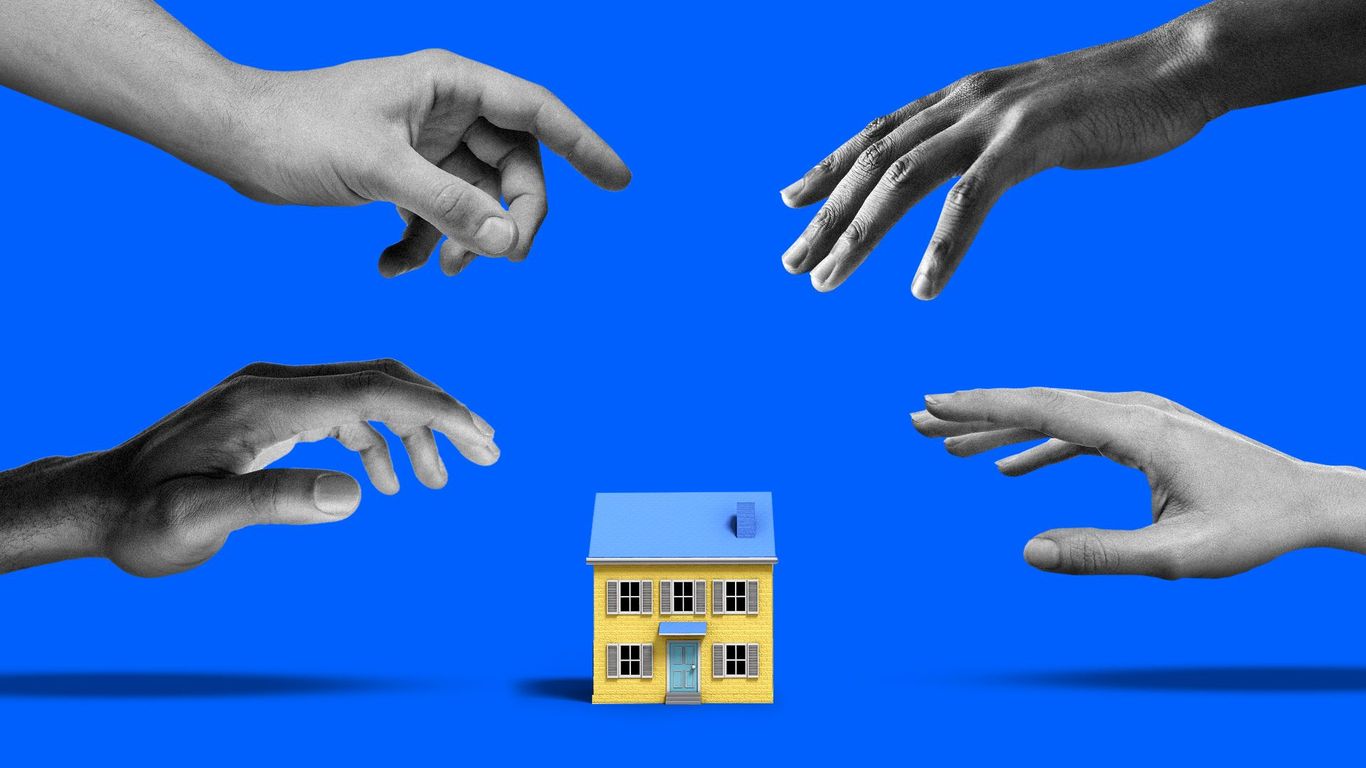We’re also seeing a rapid increase in commercial vacancies with WFH. But there are big challenges and costs to turning commercial properties into residential.
I’ve heard a lot about the problems. Surely there’s some good ideas for a solution out there?
I mean, one good long term solution is either ban or heavily, heavily tax corporate ownership of single family homes. And heavily tax short term vacation rentals. Basically force all the companies that are buying up blocks and blocks of single family housing to sell.
Then, take a look at zoning laws. I have no experience with this side, but they’re probably often a barrier to creating medium or high density housing. Which we’re gonna need a lot of in the near future.
Apparently foreign home ownership is a big issue in Canada, so I have to assume it’s also a (smaller) issue in the US.
Basically, the issue I see is not that there isn’t enough housing. It’s that corporate greed is pricing people out of their neighborhoods and then the houses are sitting empty because they’re barely worth $150k, but the “market” says they can be listed at $400k, and not many people can afford that.
A lot of this comes from the mindset of real estate as an appreciating asset. That drives the desire to buy and hold, because it only ever goes up.
Why do you think opportunity cost isn’t coming into play? If you’ve got a house only as an appreciating asset that’s not generating income, you’re losing money compared to just throwing it in the stock market. If they’re just holding it because the value always goes up, that sounds exactly like 08, and the price would have to come down once the bubble pops.
Historically, I think, housing is less volatile than the stock market. So there’s a risk mitigation strategy there that may partly be in play with companies that are purchasing single-family homes and just squatting on them.
This may also be exacerbated by rising interest rates. So companies/individuals that purchased a historically low rates are/may be reticent to sell because they can’t secure a loan with the same rates they currently have. Even IF the housing isn’t actively generating income, it could be losing LESS just due to the rates.
This is all entirely speculation on my part. I’ll freely admit I don’t know.
So companies/individuals that purchased a historically low rates are/may be reticent to sell because they can’t secure a loan with the same rates they currently have.
Can confirm, the interest rates have been a huge deterrent to me for selling my home and moving. My current interest rate is 2.75%, back when I was looking around I was being quoted around 7%, which would have had a significant effect on my monthly payments.
It’s easier to wait out the storm and move when the interest rates (hopefully) recover. They seem to be improved since I last was looking at places, but I don’t think I’ll be abke to get a rate close to what I have anytime soon :(
Capping rental rates to mortgages is the best solution. Whatever the mortgage is, you can’t charge a penny more than that.
Any tax burden will be passed to the renter without a cap on rental rates.
A use it or lose it policy would also be effective. Rent or sell an unoccupied house or it is turned over to the city council at half tax assessment value.
You need to have teeth, actual losses to encourage them to move.
capping rents to the mortgage means you can only rent out a property at a loss, because you can’t recoup repairs, maintenance, utilities, vacancy, or administrative fees through rent. this effectively makes being a landlord illegal, which you’d might as well do outright if that’s the objective.
Completely reversed cause and effect. High home prices are causing the housing “shortage”
What do you suppose causes high housing prices then?
Corporations buying them up to rent out is my speculation, between that, people attempting to flip them, and just regular home buyers, it’s making for a very low amount available which causes prices to be high, and new houses aren’t being built fast enough to keep up.
I live in an older neighborhood and at least 50% of every house that has gone on the market since we bought in 2019 has been sold to flippers and listed for $200k more 3-6 months later. I can’t believe how much they have driven up prices in the area.
Speculation and, more broadly, commodification.
Those are definitely factors as well but I think they are only enabled by the lack of supply. People can’t bid up the price of something if more can be easily produced in response.
There is no lack of supply. The supply of empty homes far exceeds the number of unhoused people.
A literal truth that ignores the logistical, geographic, and political difficulties of getting those people into those houses.
Historically speaking vacancies are extremely low currently, particularly in areas where housing prices are high and homelessness is common. These problems appeared as the ratio of people to housing increased and it’s not a coincidence.
The easiest solution will be to build more housing where it is most needed, though that takes time and other strategies will be necessary in the interim.
The thing that bothers me is the shortage is completely artificial. There are approximately 28 vacant homes in America for every unhoused person. I live next to a housing development with an ungodly number of 4 bed 2.5 bath McMansions, most of which have, as far as I can tell, sat empty for the last two years. Not for sale, not for rent, just parked as an investment.
This 100%. There is no shortage of physical houses. There is a shortage of AFFORDABLE houses.
I just went through the buying process. I don’t make any crazy money, but a totally fine amount, more then a lot of people (65k/year)
That meant even with a sizable down payment that I was rather lucky to have, my MAX was 200k. That meant I could afford like… 1/10 of the places for sale where I live.
Yes, same. I considered buying but given the 3% increase in the interest rate we saw, I’m just going to keep renting and hoping that things come back down before I’m 100 years old.
The only reason I got away from renting, even with the interest, was that it was still gonna be $100 cheaper, except +1 bed +1 bath and I actually OWN it.
Plus, with my loan the interest rate can’t go any higher, but can be refinanced if things go lower. So since I was basically break even on the current interest, I decided to take it.
I sort of like the idea that I can just… leave… and not worry about having an expensive albatross hanging around my neck. And my rent is low for the area so I’m doing better for now renting. I’d like to own eventually, I guess, but I prefer not to spend more per month if I can avoid it.
My rent was gonna go up $300, so that made it pretty easy as well haha. (I woulda stayed renting too if it had been cheaper /month)
This got me thinking, I wonder if the reason they don’t fix homelessness is to create artificial scarcity for home values








